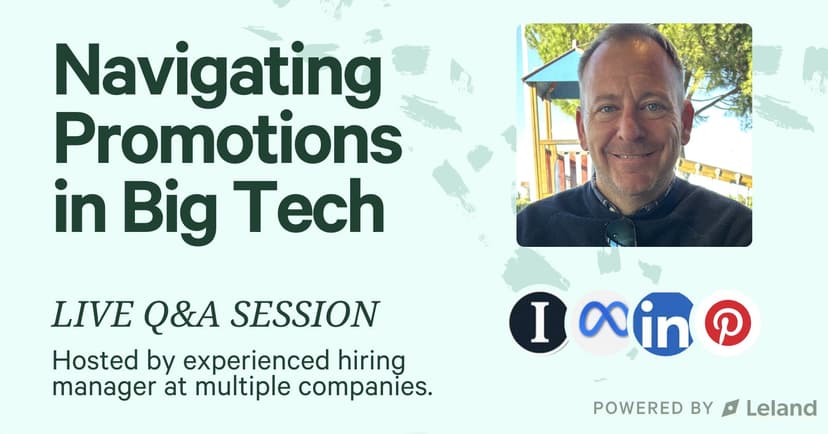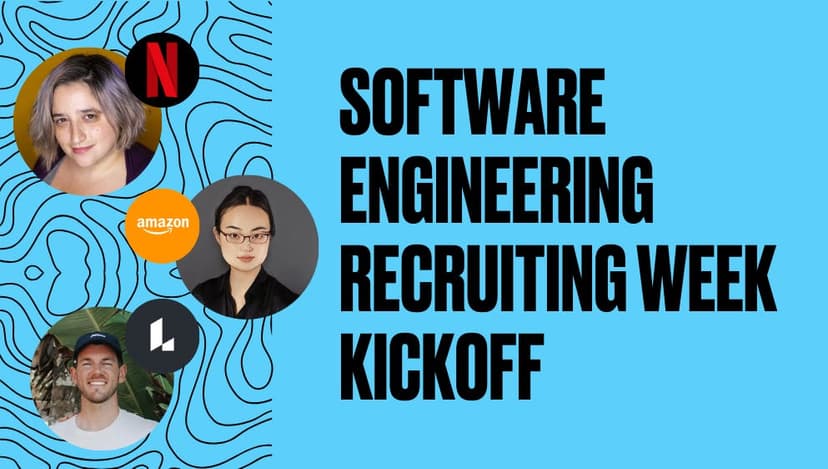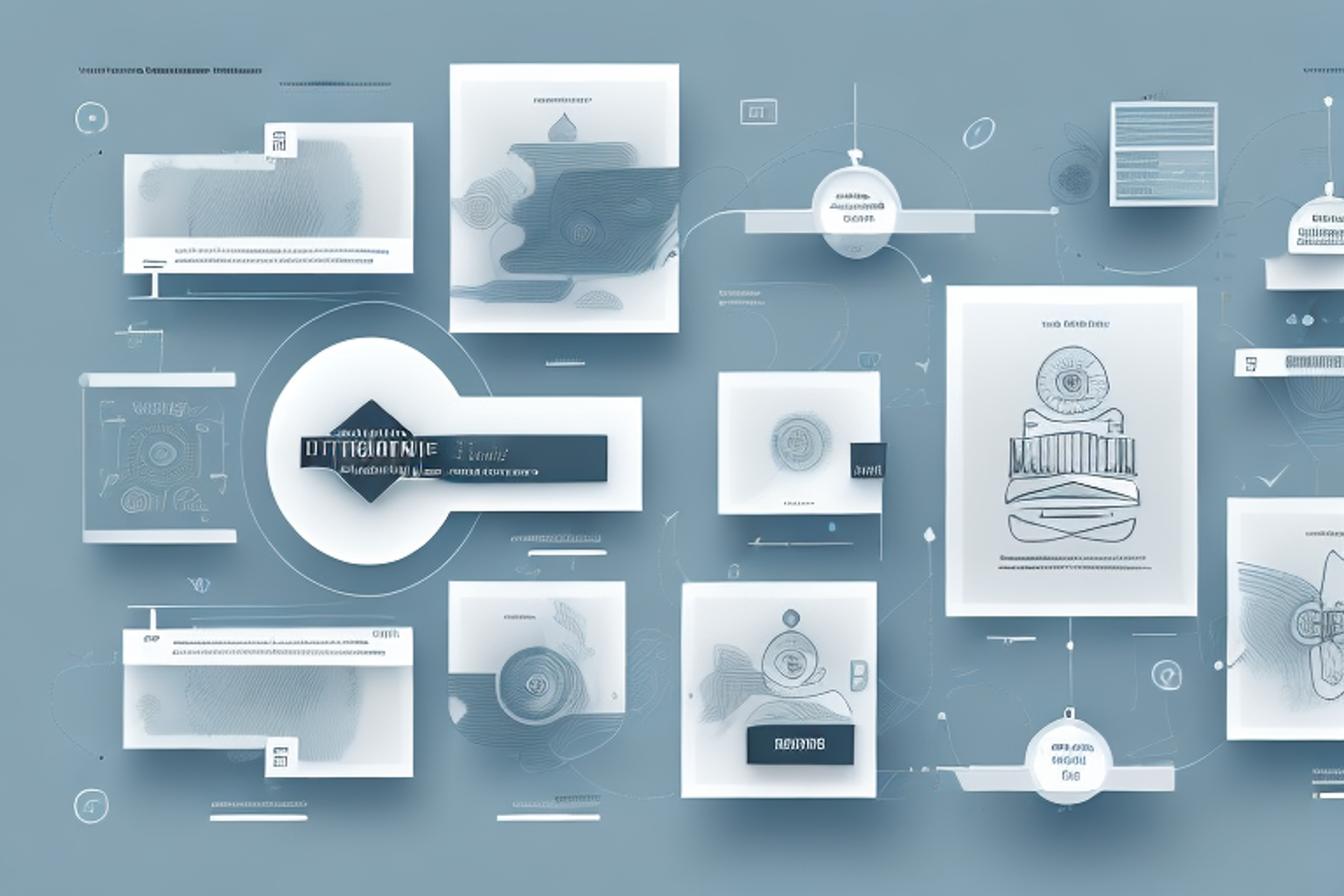A 2023 New Grad Software Engineer's Guide to Making Their Mark in a Competitive Industry
Are you a new grad software engineer looking to make your mark in a competitive industry? Look no further! Our guide for 2023 new grad software engineers provides valuable insights and tips to help you stand out and succeed in your career.
Posted October 25, 2025

Join a free event
Learn from top coaches and industry experts in live, interactive sessions you can join for free.
Table of Contents
Congratulations on your graduation, and welcome to the software engineering industry! You are entering a competitive field that moves at lightning speed. It may feel overwhelming, but with the right mindset and strategy, you can make your mark. In this article, we'll explore the current state of the industry, and provide you with practical tips on navigating the job market, building a professional network, maximizing your job search with LinkedIn and other tools, crafting your resume and cover letter, preparing for technical interviews, excelling in the onboarding process, overcoming imposter syndrome, establishing yourself as a valuable team member, balancing technical skills with soft skills, pursuing continuing education opportunities, navigating difficult conversations, and staying motivated and avoiding burnout. So, let's dive in!
Understanding the Current State of the Software Engineering Industry
The software engineering industry is constantly evolving and expanding, with new technologies and trends emerging regularly. It is vital to stay up-to-date with the latest developments and trends to thrive in this industry. Currently, there is a high demand for software engineers, but there is also a challenge in finding and retaining skilled professionals. In addition to technical skills, companies are placing increasing importance on soft skills such as communication, collaboration, and problem-solving. The most successful software engineers not only possess technical expertise but also have the ability to work as part of a team and communicate effectively with clients and colleagues.
One of the emerging trends in the software engineering industry is the increasing use of artificial intelligence and machine learning. These technologies are being integrated into various software applications, from chatbots to self-driving cars. As a result, software engineers need to have a solid understanding of these technologies and how they can be applied to solve real-world problems.
Another important aspect of the software engineering industry is the need for continuous learning and professional development. With new technologies and trends emerging regularly, software engineers need to stay up-to-date with the latest developments to remain competitive in the job market. This can be achieved through attending conferences, taking online courses, or participating in coding bootcamps.
Navigating the Job Market as a New Grad Software Engineer
The job market for software engineers is highly competitive, and it can be challenging to stand out as a new grad. One approach is to leverage your network, including professors, alumni, and industry professionals, to find job opportunities. Attend job fairs and career events, and make sure to showcase your technical skills as well as your soft skills. Having open-source contributions or personal projects on GitHub can also demonstrate your passion and dedication to software engineering.
Building a Strong Professional Network
Networking is crucial for software engineers, whether you are a new grad or a seasoned professional. It's important to build relationships with industry experts, peers, and potential mentors. Attend industry events and conferences, join online communities and forums, and participate in industry groups on LinkedIn. By building a strong network, you will have access to a wealth of knowledge and opportunities, including job referrals, mentorship, and collaborative projects.
In addition to attending industry events and conferences, consider volunteering or speaking at these events. This can help you establish yourself as a thought leader in your field and make valuable connections with other professionals. You can also consider reaching out to alumni from your university or college who work in the industry, as they may be able to provide valuable insights and connections.Another way to build your network is to participate in open source projects. Contributing to open source projects can help you gain experience, build your portfolio, and connect with other developers who share your interests. You can also consider starting your own open source project, which can help you establish yourself as a leader in your field and attract other developers to collaborate with you. By taking these steps to build your professional network, you can position yourself for success in your career as a software engineer.
Maximizing Your Job Search with LinkedIn and Other Tools
LinkedIn is a powerful tool for job searching, networking, and building your personal brand. Complete your profile with a professional photo, summary, and experience section, and include your technical skills and projects. Connect with colleagues, professors, and industry professionals, and engage with their posts by commenting and sharing. You can also search for jobs on LinkedIn and set up job alerts to receive notifications when new openings are posted. Other job search platforms include Glassdoor, Indeed, and AngelList.
In addition to using online job search platforms, it's important to also attend career fairs and networking events. These events provide opportunities to meet with recruiters and hiring managers in person, and to learn more about different companies and industries. Bring copies of your resume and business cards to hand out, and be prepared to give a brief elevator pitch about yourself and your career goals.Another way to maximize your job search is to reach out to your personal and professional networks. Let your friends, family, and colleagues know that you're actively looking for a job, and ask if they know of any opportunities or can provide any referrals. You can also join professional organizations and attend their events to expand your network and learn about job openings in your field. Remember, networking is all about building relationships and making connections, so be genuine and authentic in your interactions.
Crafting Your Resume and Cover Letter for Success
Your resume and cover letter are your first impression with potential employers, so it's essential to create a strong and compelling application. Tailor your resume to the job description, highlighting your relevant technical skills and experience. Use bullet points and action verbs to convey your achievements and contributions. Your cover letter should also be tailored to the job, demonstrating your passion and enthusiasm for the company and the industry.
Preparing for Technical Interviews: Tips, Tricks, and Resources
Technical interviews can be nerve-wracking, but with preparation and practice, you can overcome any obstacles. Research common technical interview questions and practice answering them out loud. Use online resources such as LeetCode and HackerRank to sharpen your coding skills. Don't forget to also prepare for behavioral interview questions and demonstrate your soft skills in the interview.
Excelling in the Onboarding Process: Making a Great First Impression
The onboarding process is a crucial time to make a great first impression and set the tone for your future success at the company. Take the time to learn about the company culture, mission, and values. Connect with your colleagues, ask questions, and take initiative on projects. Demonstrate your technical and soft skills, and make sure to ask for feedback and guidance.
Overcoming Imposter Syndrome in Your New Role
Imposter syndrome is a common feeling among new software engineers, but it's important to remember that everyone starts somewhere. Embrace the learning process and ask questions when you don't know something. Seek out mentorship and support from your colleagues and professional network. Finally, remember that mistakes and failures are a natural part of the learning process, and that growth comes from learning from them.
Strategies for Establishing Yourself as a Valuable Team Member
Working as part of a team is a vital aspect of software engineering, and it's essential to establish yourself as a valuable team member. Communicate clearly and effectively, share knowledge, and collaborate on projects. Be open to feedback and criticism, and use it to improve your skills. Demonstrate accountability and take ownership of your work, and contribute to the team's success.
Balancing Technical Skills with Soft Skills to Succeed in the Workplace
Technical skills are essential for software engineering, but they are not the only skills that matter. Soft skills such as communication, collaboration, problem-solving, and time management are equally important and can help you succeed in the workplace. Make sure to invest time and energy in developing both your technical and soft skills.
Pursuing Continuing Education Opportunities to Stay Ahead of the Curve
The software engineering industry is constantly evolving, and it's essential to stay up-to-date with the latest developments and trends. This can be achieved through pursuing continuing education opportunities, such as online courses, certifications, or attending conferences and workshops. Don't be afraid to step outside of your comfort zone and learn something new.
Navigating Difficult Conversations with Managers and Coworkers
Difficult conversations are a natural part of the workplace, but they can be challenging to navigate. It's essential to approach them with empathy, respect, and professionalism. Prepare for the conversation by clarifying your goals and objectives, and think about potential solutions. Use active listening skills and be open to feedback and criticism.
Tips for Staying Motivated and Avoiding Burnout in a High-Stress Industry
The software engineering industry can be stressful and demanding, but it's important to prioritize your mental health and well-being. Make sure to take breaks, prioritize self-care, and set realistic goals. Seek support from your colleagues, mentors, and professional network, and remember that it's okay to ask for help when you need it.
Embracing a Growth Mindset to Achieve Long-Term Success as a Software Engineer
A growth mindset is the belief that you can improve your skills and abilities through hard work, dedication, and learning. Embrace this mindset to achieve long-term success as a software engineer. Keep an open mind, seek out learning opportunities, and be persistent in pursuing your goals. Remember that success in this industry comes from a combination of technical skills, soft skills, and a growth mindset.
Read More
























